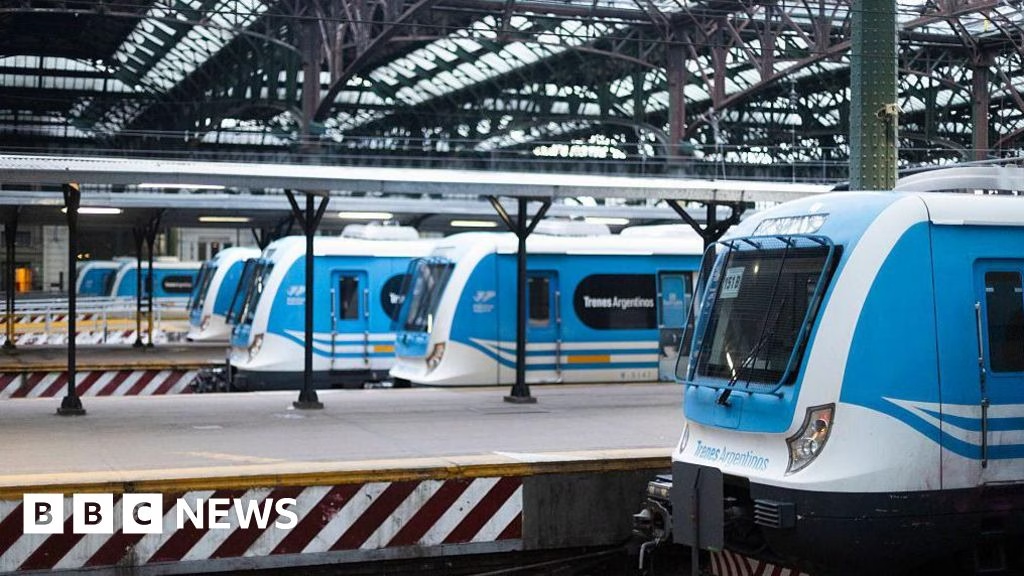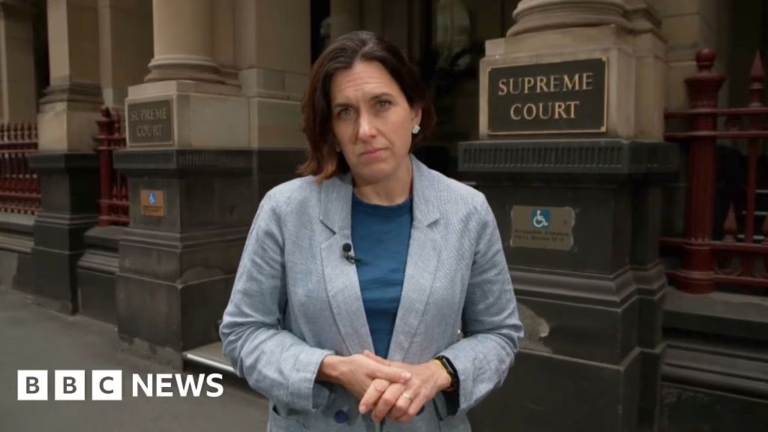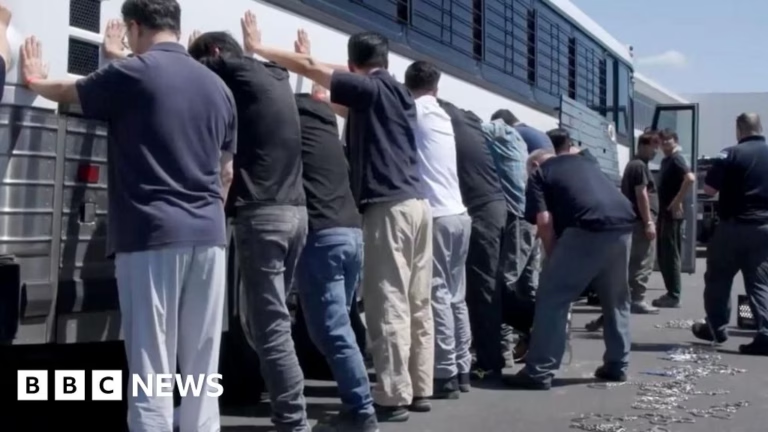A widespread strike in Argentina, in opposition to public spending cuts, has significantly impacted transportation services across the nation.
All domestic flights were grounded, and train and metro services suspended in Buenos Aires and other areas.
In the capital, numerous shops remained closed, though bus drivers continued their operations. International flights were minimally affected, with only slight delays.
This marks the third general strike called by Argentina’s influential labor unions following President Javier Milei’s inauguration at the end of 2023.
Since taking office, President Milei has implemented stringent austerity measures to combat hyperinflation, which have initially been effective, reducing inflation from over 200% to approximately 60% annually. Yet, the unions argue that the most vulnerable populations, such as pensioners and low-wage workers, have been disproportionately affected.
Milei has cut subsidies for transportation, fuel, and energy, dismissed thousands of public employees, and closed government departments.
Horacio Bianchi, a retired teacher in Buenos Aires, stated to Associated Press that the population is suffering due to lack of funds for basic necessities.
“These individuals [the government] were supposed to resolve the issues, but they have significantly aggravated the situation for everyone,” he added.
Workers joined a weekly protest organized by pensioners, who have seen their pension funds drastically reduced, which has recently turned violent with the involvement of supporting groups and confrontations with the police.
The strike coincides with Argentina’s anticipation of a potential $20 billion (£15.4bn) loan from the International Monetary Fund, on top of the nation’s existing $44 billion debt.
The US Treasury has praised Milei, stating that he has “brought Argentina back from the brink of economic destruction.”
US Treasury Secretary Scott Bessent is set to visit Buenos Aires on Monday to express support for the ongoing reforms.







